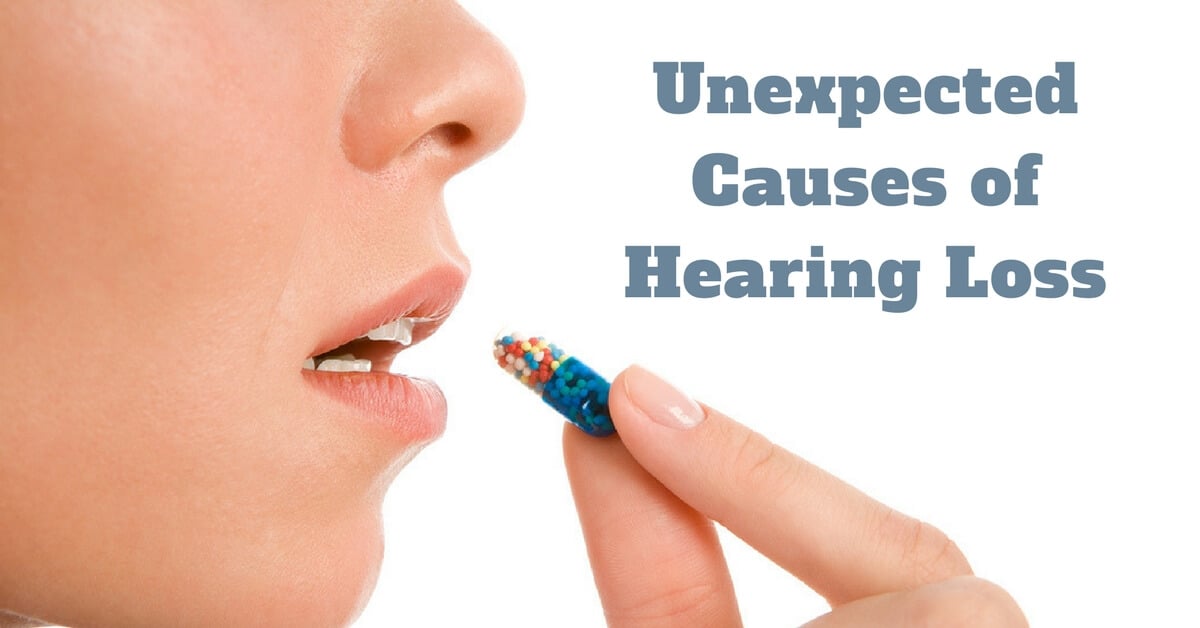
Do you know what causes hearing loss? You probably can come up with an answer easily. Loud noises, rock concerts, and age all contribute to hearing loss. While that’s true, there are several causes of hearing loss that aren’t so obvious. Here’s a hint. They’re even more unexpected than city noise or earbud use, and don’t have anything to do with the construction site.
Hypertension
Did you know that hypertension, or high blood pressure, is linked to hearing loss? If you have hypertension, you’re 50% more likely to have hearing loss than your friends with normal blood pressure. While the jury is still out on how these are linked, the relationship is undeniable, and some researchers have theorized that hypertension speeds up age-related hearing loss, so you’ll experience hearing loss sooner and have more profound symptoms. If you have hypertension, visit a doctor and safeguard yourself against heart diseases, heart attacks, and hearing loss.
Diabetes
You are well acquainted with diabetes, as it affects millions of Americans of all ages. Tied to diet, lifestyle, and overall health, it’s no surprise that diabetes also affects your hearing health. According to the American Diabetes Association, those with diabetes are twice as likely to struggle with hearing loss! For the 29 million Americans living with diabetes, the risk of hearing loss is real.
Airbags
One unexpected cause of hearing loss is airbag deployment. In a car crash, the last thing you’re thinking about is your hearing, but if you’ve been in an accident recently make sure you come in for a hearing test. Airbags deploy with so much force that 17% of people in accidents that activated the airbags have hearing loss. While we’re glad airbags save lives, they can damage your hearing.
Smoking
We’re not the first ones to tell you that smoking has a negative impact on your health. From increasing your risk of cancer and lung diseases to worse overall health, smoking also leads to hearing loss. The nicotine in your cigarettes is the culprit. It restricts the function of the red blood cells, making it hard for them to do their job. The red blood cells are responsible for carrying oxygen from the lungs through the entire body. The fragile cells in the inner ear are particularly susceptible to lack of oxygen. They can’t function without it, and may even die. Exposing yourself to nicotine blocks your ears from receiving sounds signals from the outside world and transmitting them to the brain, and you won’t be able to hear like you used to.
Pain Killers
The American Journal of Epidemiology reported that taking either ibuprofen (like Advil) or acetaminophen (such as Tylenol) increases your chances of developing hearing loss. Working in similar ways as nicotine, these drugs restrict blood flow to the ear, damaging the hair cells in the inner ear, and causing permanent hearing loss. If you take pain killers regularly, be cautious. All it takes is a few pills a couple times a week to experience negative effects.
Allergies
You know the signs and symptoms of allergies. But the sneezing and sniffling that lasts for a couple of months every spring isn’t the only side effect of all the pollen in the air. For those with allergies, it’s common to have an allergic reaction in the inner ear. The ear produces more fluid and wax to fight the allergy, causing swelling or pain. If you suffer from seasonal allergies, treating it could be the key to saving your hearing.
Shingles
Do you suffer from shingles? Have you experienced that itching, burning, prickling feeling on your scalp? Half of all seniors will struggle with shingles, and this is another unexpected cause of hearing loss. When the itching on the scalp finds its way to the ear, it is diagnosed as Ramsay Hunt syndrome, and can be very painful. While it leads to profound hearing loss in the affected ear, it can be treated with mediations and hearing can often be restored.
If you have hearing loss, whatever the cause, there’s a solution to give you back your ability to hear. Visit us today at one of our My Hearing Centers locations for a hearing assessment, determine the cause of your hearing loss, and get fitted for the hearing aids that will change your life.
